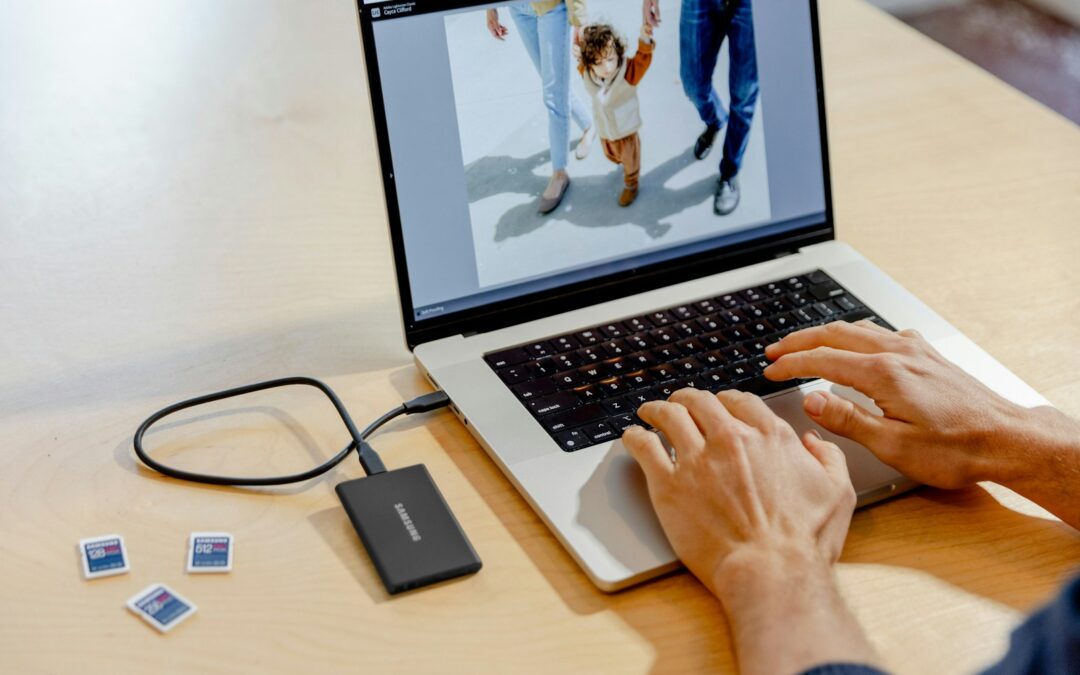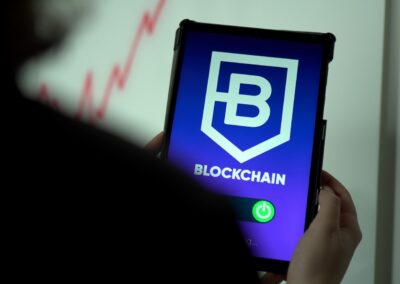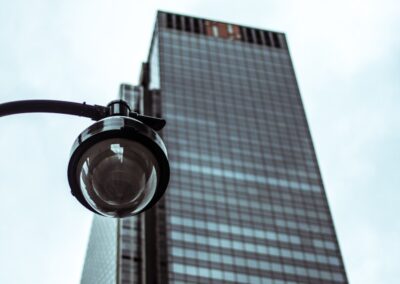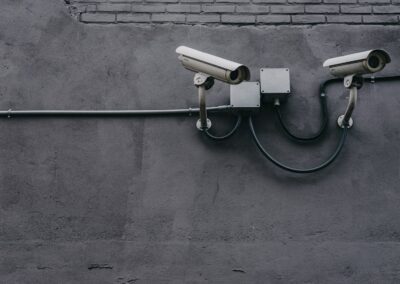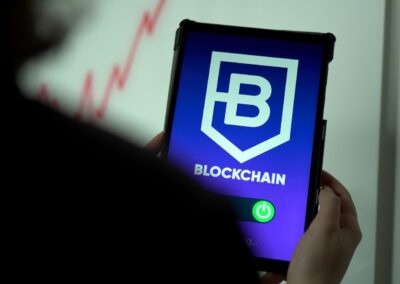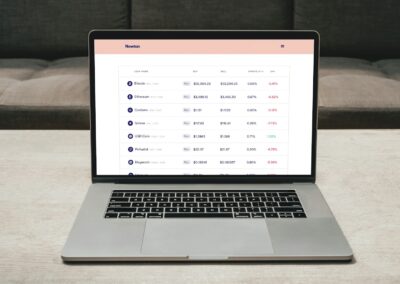The Role of Blockchain in IoT Data Integrity
Enhancing Data Security and Transparency
Ensuring IoT data integrity with blockchain technology is revolutionizing the security and transparency of connected devices. Blockchain’s decentralized ledger system offers a robust solution for protecting data from tampering and unauthorized access. In technologically advanced cities like Riyadh and Dubai, where IoT applications are rapidly expanding, blockchain ensures that data remains accurate and trustworthy.
Blockchain technology enhances data security by creating an immutable record of all transactions. Each piece of data is stored in a block, linked to the previous one, forming a chain that is nearly impossible to alter without detection. For instance, in Dubai’s smart city initiatives, blockchain can secure data from various IoT devices, ensuring that the information remains consistent and transparent across all systems. This is crucial for applications such as smart transportation and energy management, where data accuracy is paramount.
Moreover, the transparency provided by blockchain fosters trust among stakeholders. In Riyadh’s healthcare sector, for example, patient data collected through IoT devices can be securely recorded on a blockchain, ensuring that only authorized personnel can access it. This transparency helps maintain data integrity while complying with stringent privacy regulations. By leveraging blockchain, organizations in Saudi Arabia and the UAE can guarantee the reliability and authenticity of their IoT data.
Streamlining Data Management
Blockchain technology not only enhances security but also streamlines data management processes. The decentralized nature of blockchain eliminates the need for a central authority to manage and verify data, reducing the risk of single points of failure. In large-scale IoT deployments across Saudi Arabia and the UAE, this decentralization ensures continuous data availability and reliability.
For example, in Dubai’s smart grid projects, blockchain can manage data from thousands of IoT sensors monitoring electricity consumption. By distributing the data across multiple nodes, blockchain ensures that the information remains accessible even if one or more nodes fail. This redundancy is critical for maintaining the stability and efficiency of essential services.
Additionally, blockchain’s automated smart contracts can facilitate seamless data transactions between IoT devices. In Riyadh’s smart agriculture initiatives, smart contracts can automate data sharing between soil sensors and irrigation systems, ensuring optimal water usage based on real-time conditions. This automation reduces manual intervention, minimizes errors, and enhances the overall efficiency of IoT systems.
Ensuring Compliance and Auditability
Another significant advantage of blockchain in IoT is its ability to ensure compliance and auditability. Blockchain’s immutable ledger provides a transparent and traceable record of all data transactions, making it easier for organizations to comply with regulatory requirements. This is particularly important in sectors such as finance and healthcare, where data integrity and compliance are critical.
In the UAE’s financial industry, for instance, blockchain can ensure that IoT data related to transactions and customer interactions is securely recorded and easily auditable. This transparency simplifies compliance with regulations such as anti-money laundering (AML) and know your customer (KYC) requirements. By providing a clear audit trail, blockchain helps financial institutions in Dubai maintain the integrity and legality of their operations.
Similarly, in Riyadh’s healthcare sector, blockchain can track and verify the entire lifecycle of medical devices and pharmaceuticals. By recording every transaction on the blockchain, from manufacturing to distribution to usage, healthcare providers can ensure that they comply with regulatory standards and maintain the highest levels of patient safety.
Implementing Blockchain for IoT Data Integrity
Choosing the Right Blockchain Platform
Selecting the appropriate blockchain platform is crucial for ensuring IoT data integrity. Various blockchain platforms offer different features and capabilities, making it essential to choose one that aligns with the specific needs of the IoT application. For instance, platforms like Ethereum provide robust smart contract functionality, making them ideal for automating IoT data transactions.
In Dubai’s smart city projects, choosing a blockchain platform that supports high transaction throughput and scalability is vital. This ensures that the platform can handle the vast amounts of data generated by IoT devices without compromising performance. Similarly, in Saudi Arabia’s energy sector, a blockchain platform with strong security features is essential to protect sensitive data from cyber threats.
Additionally, the chosen blockchain platform should be compatible with existing IoT infrastructure. Ensuring seamless integration between IoT devices and the blockchain is critical for maintaining data integrity. By carefully selecting the right platform, organizations in Riyadh and Dubai can maximize the benefits of blockchain for their IoT applications.
Integrating Blockchain with IoT Infrastructure
Successful implementation of blockchain in IoT requires seamless integration with existing infrastructure. This involves connecting IoT devices to the blockchain network and ensuring that data is accurately recorded and verified. In smart cities like Riyadh and Dubai, this integration is crucial for maintaining the reliability and integrity of IoT data.
To achieve seamless integration, organizations should use standardized protocols and interfaces that facilitate communication between IoT devices and the blockchain. For example, using APIs (Application Programming Interfaces) and IoT gateways can streamline data transmission from devices to the blockchain. This ensures that data is accurately captured and recorded, maintaining its integrity.
Moreover, leveraging edge computing can enhance the efficiency of blockchain integration. By processing data locally at the edge before sending it to the blockchain, organizations can reduce latency and improve real-time decision-making. In Dubai’s smart transportation systems, for instance, edge devices can preprocess traffic data and send validated transactions to the blockchain, ensuring timely and accurate data updates.
Ensuring Scalability and Performance
Scalability and performance are critical considerations when implementing blockchain for IoT data integrity. As the number of IoT devices increases, the blockchain network must be able to handle the growing volume of data transactions. Ensuring scalability involves optimizing the blockchain’s architecture and protocols to support high transaction throughput.
In Saudi Arabia’s expansive IoT deployments, for instance, using sharding techniques can enhance blockchain scalability. Sharding divides the blockchain network into smaller, manageable segments, allowing parallel processing of transactions. This approach improves the network’s ability to handle large-scale IoT data without compromising performance.
Additionally, implementing consensus algorithms that prioritize speed and efficiency can enhance blockchain performance. For example, using Proof of Stake (PoS) instead of Proof of Work (PoW) can reduce the computational load and increase transaction speed. In Dubai’s smart energy grids, such consensus mechanisms ensure that data is quickly validated and recorded, maintaining the system’s efficiency and reliability.
Conclusion
The integration of blockchain technology with IoT systems significantly enhances data integrity and transparency. By providing robust security measures, streamlining data management, and ensuring compliance and auditability, blockchain offers a reliable solution for protecting IoT data. Implementing best practices such as choosing the right blockchain platform, integrating with existing infrastructure, and ensuring scalability and performance further maximizes the benefits of this technology. As Riyadh, Dubai, and other cities in Saudi Arabia and the UAE continue to embrace smart city initiatives, the adoption of blockchain will play a pivotal role in ensuring the reliability and trustworthiness of IoT data.
—
#Blockchain #IoT #DataIntegrity #Transparency #SaudiArabia #UAE #Riyadh #Dubai #ArtificialIntelligence #ExecutiveCoaching #GenerativeAI #ModernTechnology #BusinessSuccess #LeadershipSkills #ProjectManagement #Metaverse

